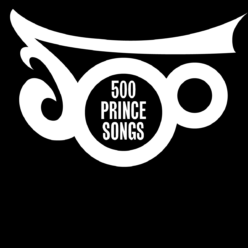Raspberry Beret single (1985)
Please raise a glass to the under-appreciated and unheralded Jill Jones. Is there a better metaphor of her time with Prince than the image of her being hid behind the stage curtain while performing backing vocals for Vanity 6? She was a better singer than anybody he thrust into the limelight during the 80s, but he wanted her kept under wraps, scared that fame would take her away from him. It’s why her solo lp was delayed for several years and why she’s the only one whose credit is cryptically initialised on 1999 despite being all over that album (including singing co-lead on the title track). Her story arc was cut out of Purple Rain and the same happened with Graffiti Bridge six years later with the added insult of her having to mime to Elisa Fiorillo on Love Machine (despite the song initially having her vocals). Nothing had changed by 2017, with Purple Rain Deluxe ignoring her completely – her song Wednesday, cut from early drafts of the film and album, notable by its absence on the bonus disc of vault material.
Because of this drawn veil over her input, Jill gets overlooked by the wider world in favour of more visible band members like Wendy and Lisa. Yet she was there at the start of the Revolution and her involvement outlasted them. Only Dr Fink and Jerome was part of his stable for longer. On the satellite act albums released between her uncredited appearances on Purple Rain and Sign o’ the Times, Jill features on almost all of them. She was everywhere. The Lady Cab Driver; the beautiful friend in Hello. The sparring partner on the extended version of Kiss. The Automatic dominatrix. She was always there. And what does she get for this loyalty? A song with a title suggesting her constant presence is irritating.
Prince wrote She’s Always in my Hair for Jill as an apology after a spat they had. It didn’t go down well. It wasn’t the title that wound her up, but the teasing “maybe I’ll marry her, maybe I won’t” line. On the whole, its lyrics are infinitely more affectionate than other songs he wrote that also portrayed her as his obsessive cheerleader – such as the suicidal Wednesday, or the starstruck Baby You’re a Trip. She may have identified with her character in those, after all Baby You’re a Trip was plagiarised from extracts from her diary. But singing a funhouse mirror exaggeration of yourself is different than being gifted a song by your first love that details their indifference. That had to hurt. And I’m not sure gaining the enviable accolade of being the muse for one of his greatest B-sides helped mitigate that pain.
After Jill, the next biggest inspiration for She’s Always in my Hair was a track he wrote earlier that year. Prince recreates the chugging effect he used on Apollonia 6’s Sex Shooter (created by putting a Linn drum snare through a flanger pedal) and he borrows the first four notes of its main riff to follow every “she’s always there” line. She’s Always in my Hair may wear the finger cymbals uniform of the Around the World era and have a Paisley badge slapped on its sleeve, but it was recorded deep into the Purple Rain sessions, pre-dating When Doves Cry and Take Me With U, and its stark driving rock sits better against a purple background than it does among its more opulent and rainbow-hued brethren.
It could have ended up even starker with an early yet-to-be-titled draft of its lyrics opening with the proto-Sign o’ the Times line: “a boy got killed at Disneyland today, some say he was trying to be Superman….” Sounds like it started life aimed in the wrong direction but luckily JJ was there, telling him how much she cared.
As an apology, She’s Always in my Hair sucked. But as a song it sits in the top tier of pop rock masterpieces and would be more widely viewed as such if he hadn’t kept it hidden, like its muse, behind the curtain of its more showy A-side.


29 more songs left to post
Don’t I know it. It’s getting harder to decide where the remaining songs rank.
I’ve always thought it was just average. But with that background, I now hate it. Indifference is not bothering to apologize. But writing a song to say, “you are pathetic, but at least you cheer me up” is so much worse. All I can hear now is Prince looking down at someone who seems to care about him.
I love the song but I agree, knowing the back-story can diminish it. I have that with Baby, You’re a Trip. I only recently found out the lyrics are written after he looked at her diary, and now I can’t listen to them without feeling uncomfortable.
Blasphemy to you both :)! This is a top 10er for me. If we peer into the genesis of most songs, we’ll likely find unsavory origins. I still find the backstory amusing. I never knew this story – where did you source it from? A recent book? It’s definitely fascinating.
The SAIMH backstory? It’s def in Duane Tudahl’s book. I think she talks about it on the Purple Tea podcast too – it’s a great interview, worth listening too. The BYAT story was revealed in a recent-ish interview with her. Can’t remember which one.